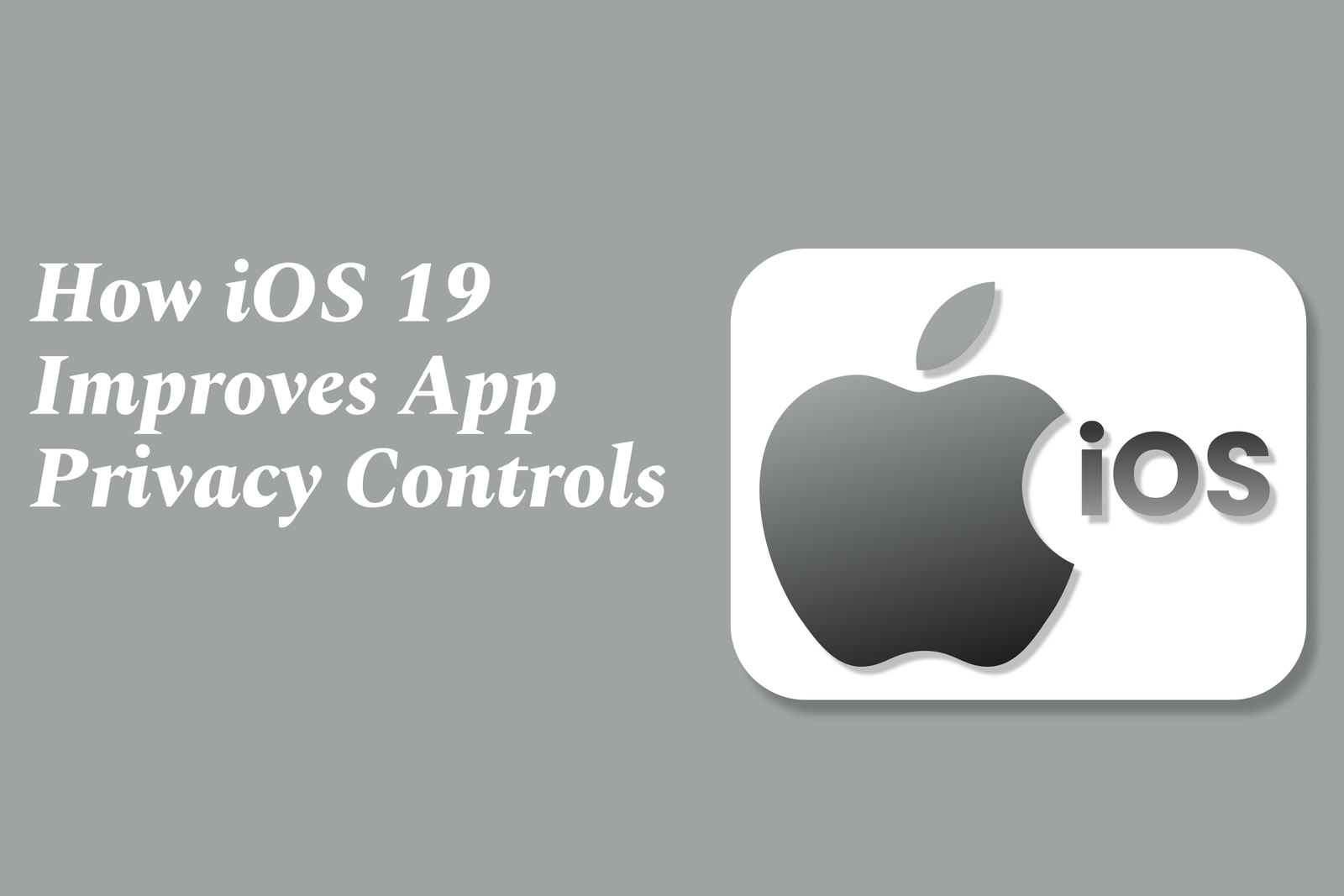How iOS 19 Improves app privacy controls
iOS 19 enhances app privacy controls by giving users more precise management over app tracking and permissions, improving transparency, and strengthening default protections. It empowers users to control how apps access their data, ensuring greater security and privacy.
How iOS 19 Improves App Privacy Controls
1 ) Enhanced App Tracking Transparency
iOS 19 builds upon existing App Tracking Transparency (ATT) by offering users more granular control over which apps can track their activity across other apps and websites.
Users can now manage tracking permissions on a per app basis more effectively, deciding precisely when and how apps get access to track their data.
2 ) Improved App Permission Management
The update expands users’ ability to monitor and adjust app permissions related to location, camera, microphone, and other sensitive data categories.
iOS 19 presents a clearer overview of apps’ access to personal data, enabling easier revocation or modification of permissions at any time.
3 ) Stricter Privacy Protections by Default
Apps requesting tracking or access to sensitive information are subject to more stringent privacy requirements.
Default privacy protections are heightened, preventing unauthorized background data collection unless explicitly allowed by the user.
4 ) Integration with System Wide Security Features
iOS 19 seamlessly integrates privacy controls with broader system security features such as Face ID and two factor authentication.
This link ensures that app permissions and tracking are protected with strong authentication methods, mitigating unauthorized access risks.
5 ) Enhanced Transparency and User Awareness
Notifications and prompts related to app privacy permissions are more informative, helping users understand the implications of granting or denying access.
Users receive timely reminders and reports about how apps utilize permissions and tracking, enhancing informed decision making.
6 ) Backward Compatibility and Support
iOS 19 continues support for apps on earlier versions but warns users about the limitations and potential risks.
It encourages users to update to iOS 19 for the most comprehensive privacy controls and security enhancements.
Overall, iOS 19 introduces meaningful improvements that empower users with robust, transparent, and customizable app privacy controls, reinforcing Apple’s commitment to user data protection.
https://justacademy.in/news-detail/the-react-native-community?s-most-popular-plugins-in-2025
https://justacademy.in/news-detail/android-file-management-app-innovations
https://justacademy.in/news-detail/react-native?s-latest-improvements-in-app-security
https://justacademy.in/news-detail/future-of-flutter-careers-post-2025
https://justacademy.in/news-detail/ios-security-best-practices-for-2025
Related Posts
Java supports GDPR and data privacy by enabling secure data handling through encryption, controlled access, and precise data management. It allows developers to minimize PII exposure, ensure data confidentiality, and design workflows that comply with data protection regulations effectively.
Java code quality tools have evolved to include advanced static analysis, integrated security checks, and AI-powered code reviews. These updates help developers detect bugs, enforce coding standards, and enhance security, streamlining the development process and improving overall code reliability.
Java remains a cornerstone in big tech companies, evolving with modern features like records, pattern matching, and virtual threads. Its robust ecosystem, enhanced performance, and growing AI integrations keep it vital for both legacy systems and innovative new projects.
Java and CI/CD pipeline optimizations streamline Java application development by automating builds, tests, and deployments. They improve efficiency through parallelization, caching, and secure secrets management, enabling faster feedback loops and more reliable, scalable software delivery.
Java supports modern cryptography standards through its flexible Java Cryptography Architecture (JCA), enabling integration of advanced algorithms like AES, EdDSA, and post-quantum tools. Libraries like Bouncy Castle offer FIPS-certified, hardware-accelerated implementations for secure development.
Java 23 enhances record patterns by enabling concise, direct destructuring of record components within pattern matching, simplifying type checks and data extraction. This improvement boosts code readability and expressiveness by reducing boilerplate in handling immutable data classes.
Java remains a top choice for mobile app backends, powering scalable, secure, and high-performance server-side solutions. Latest trends include cloud-native microservices, reactive programming, and enhanced JVM optimizations, enabling efficient, flexible, and robust mobile backend development.
Java SE 24 and LTS Java SE 21 offer enhanced features and performance, while Apache Spark 4.0.0 introduces Scala 2.13 support and advanced ML and SQL capabilities. Together, they empower developers to build scalable, high-performance data applications with modern tools.
JUnit 5 modernizes Java testing with a modular architecture, improved assertions, and seamless Java 8+ support. Beyond JUnit, tools like Mockito and AssertJ enhance mocking and assertions, creating a powerful, flexible ecosystem for writing clean, efficient Java unit tests.
Java plays a pivotal role in cloud automation tools by providing a robust, platform-independent language used to build scalable automation frameworks like Jenkins and Selenium, enabling efficient CI/CD pipelines, testing, and orchestration across diverse cloud environments.










